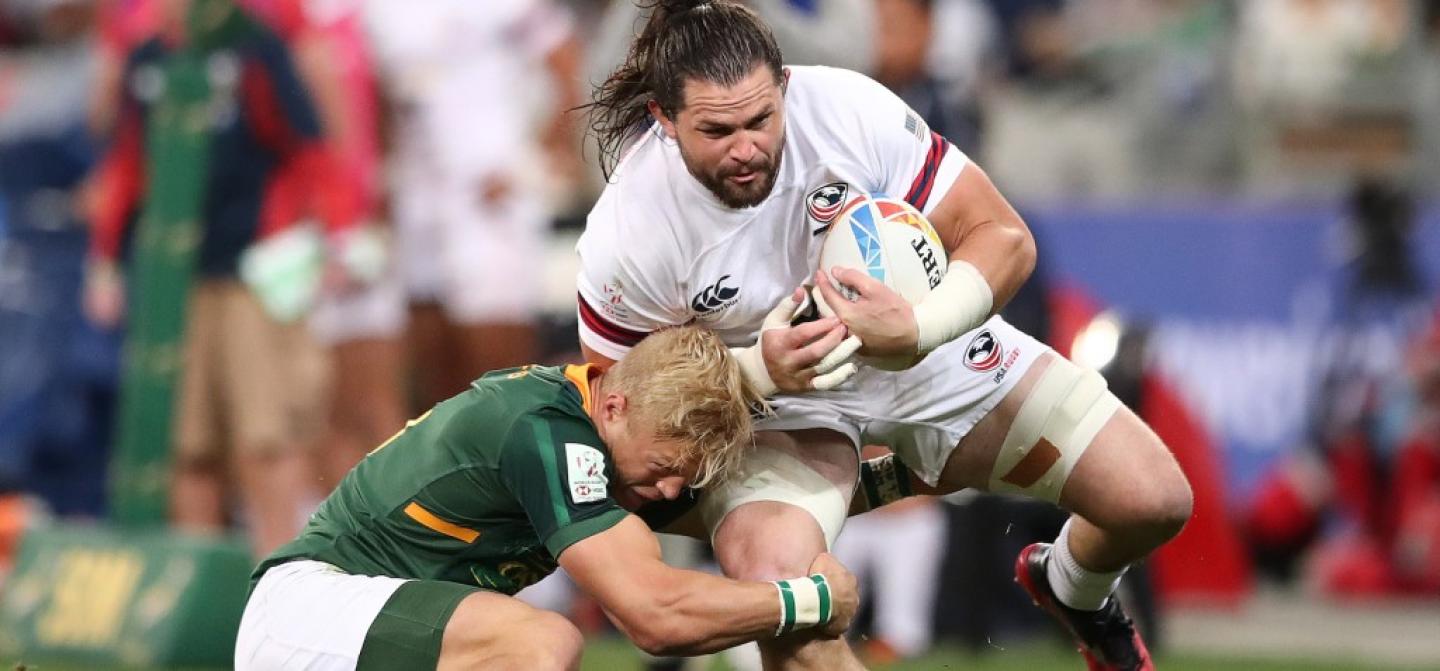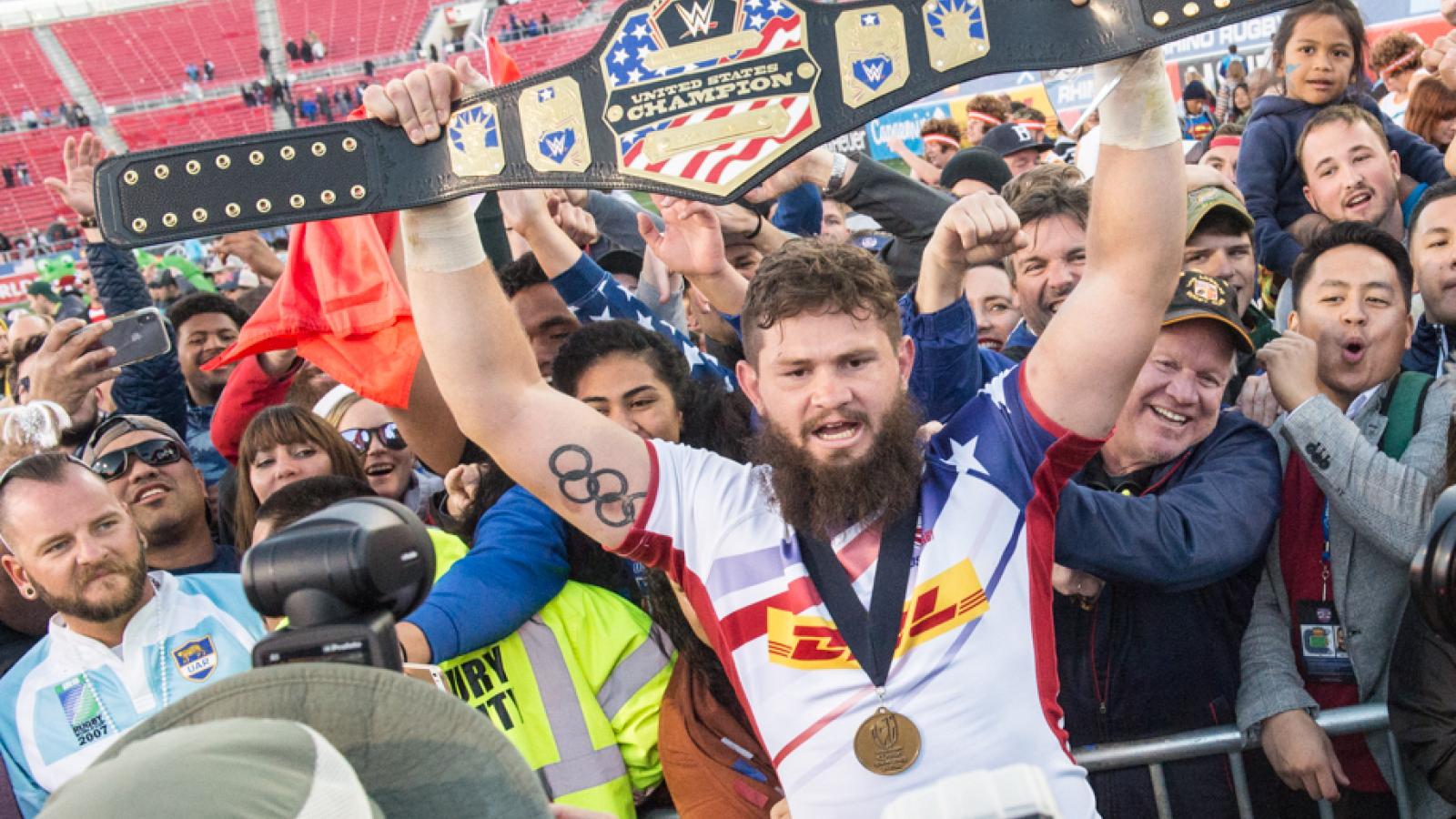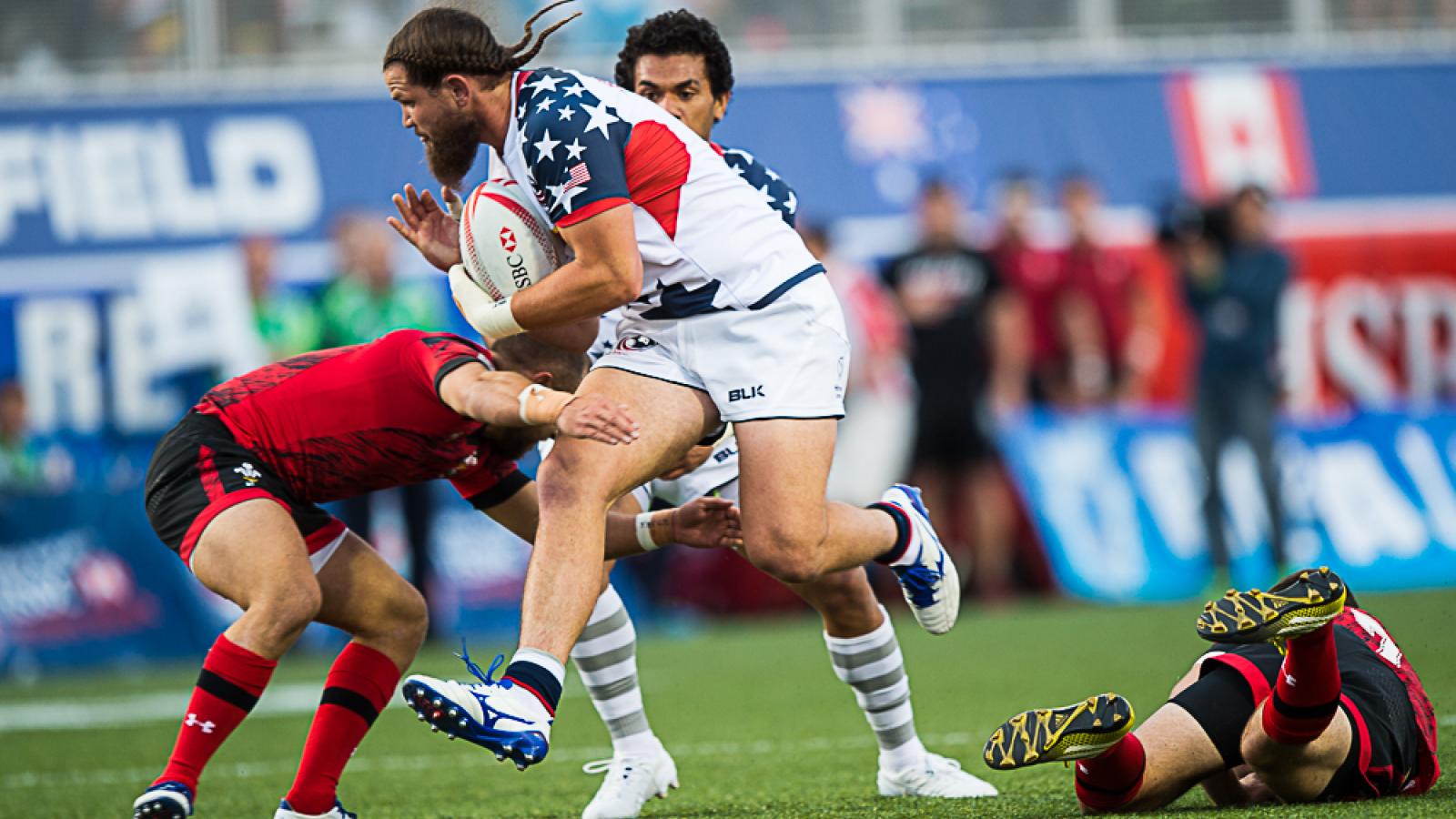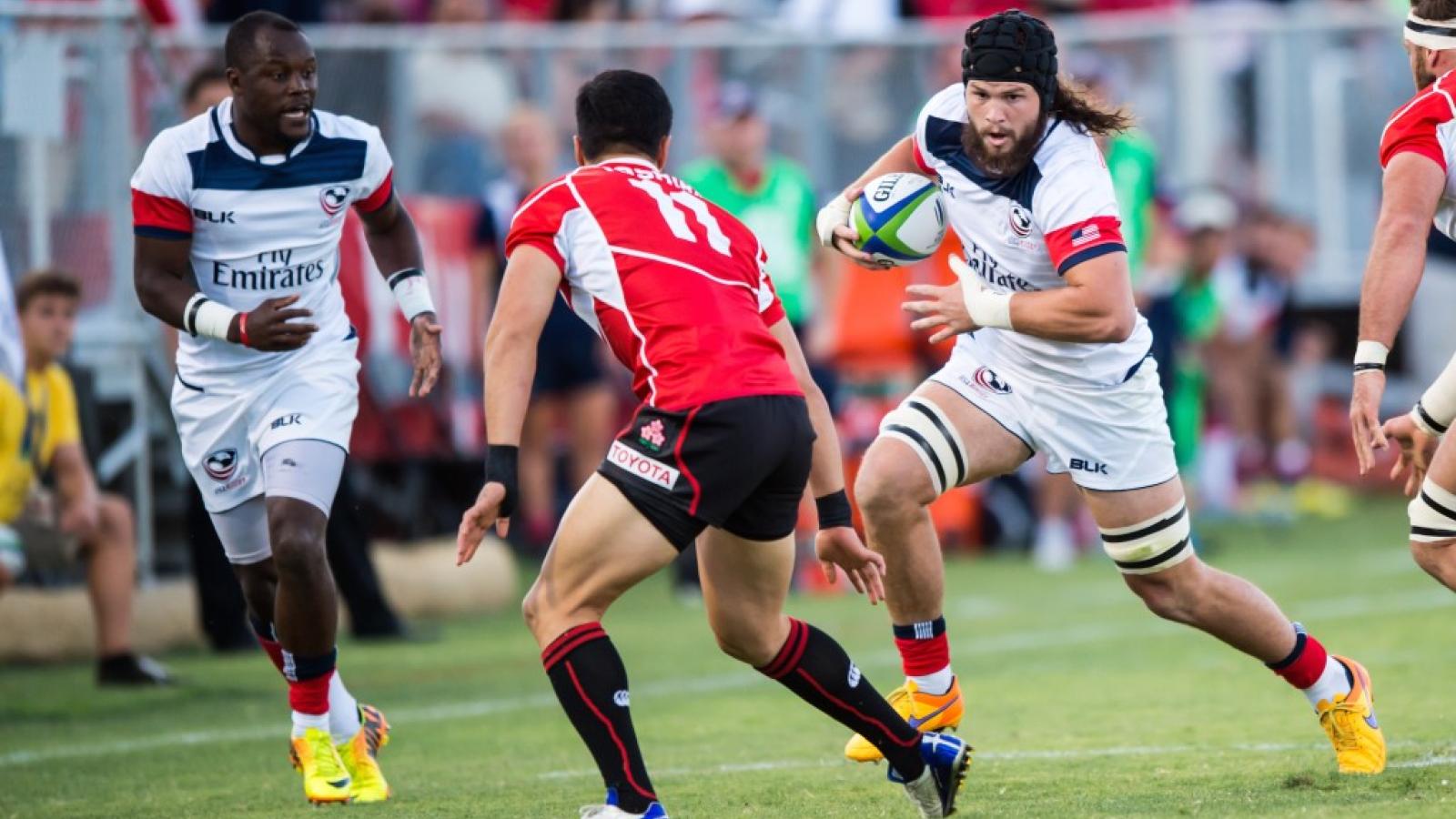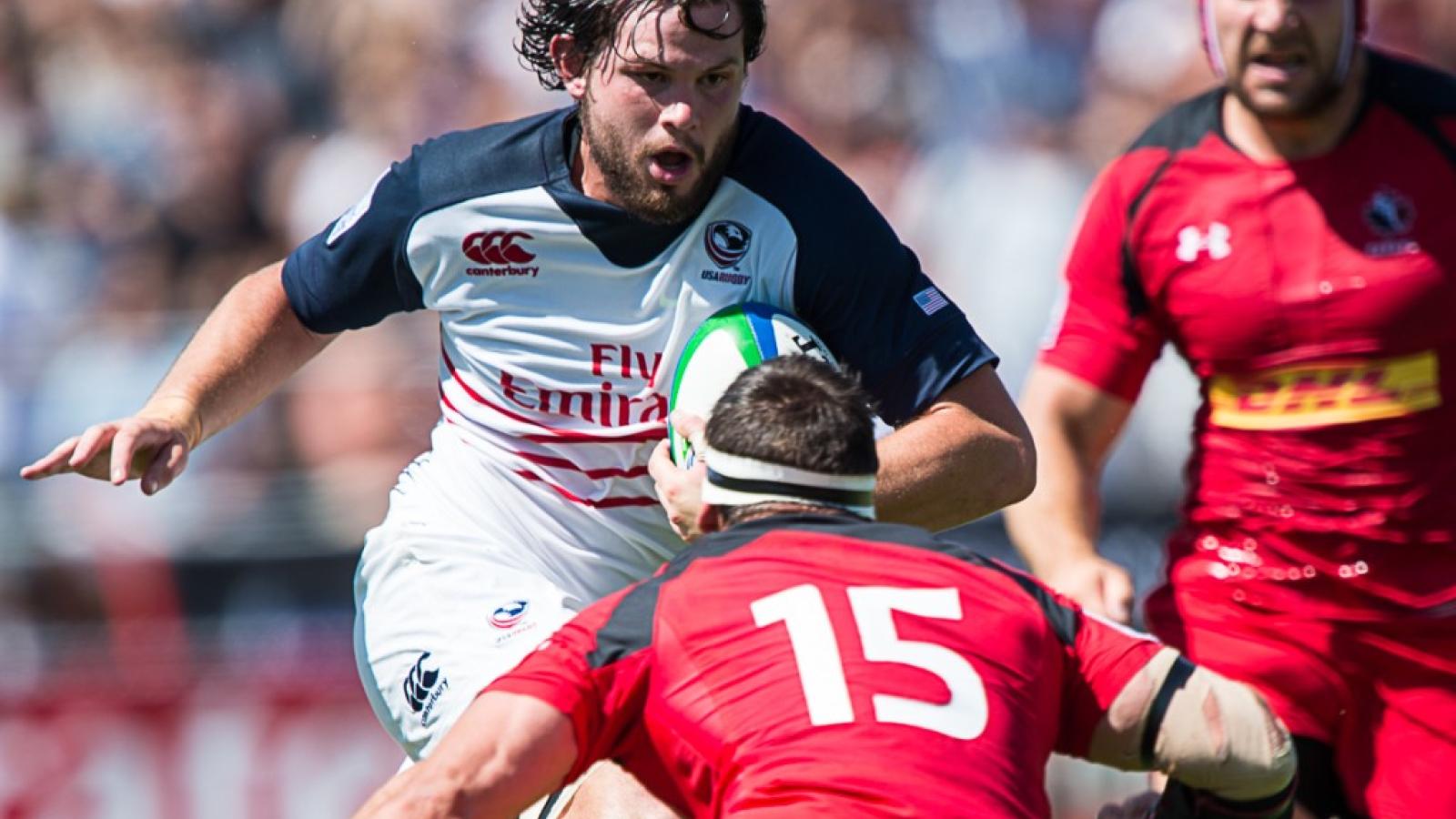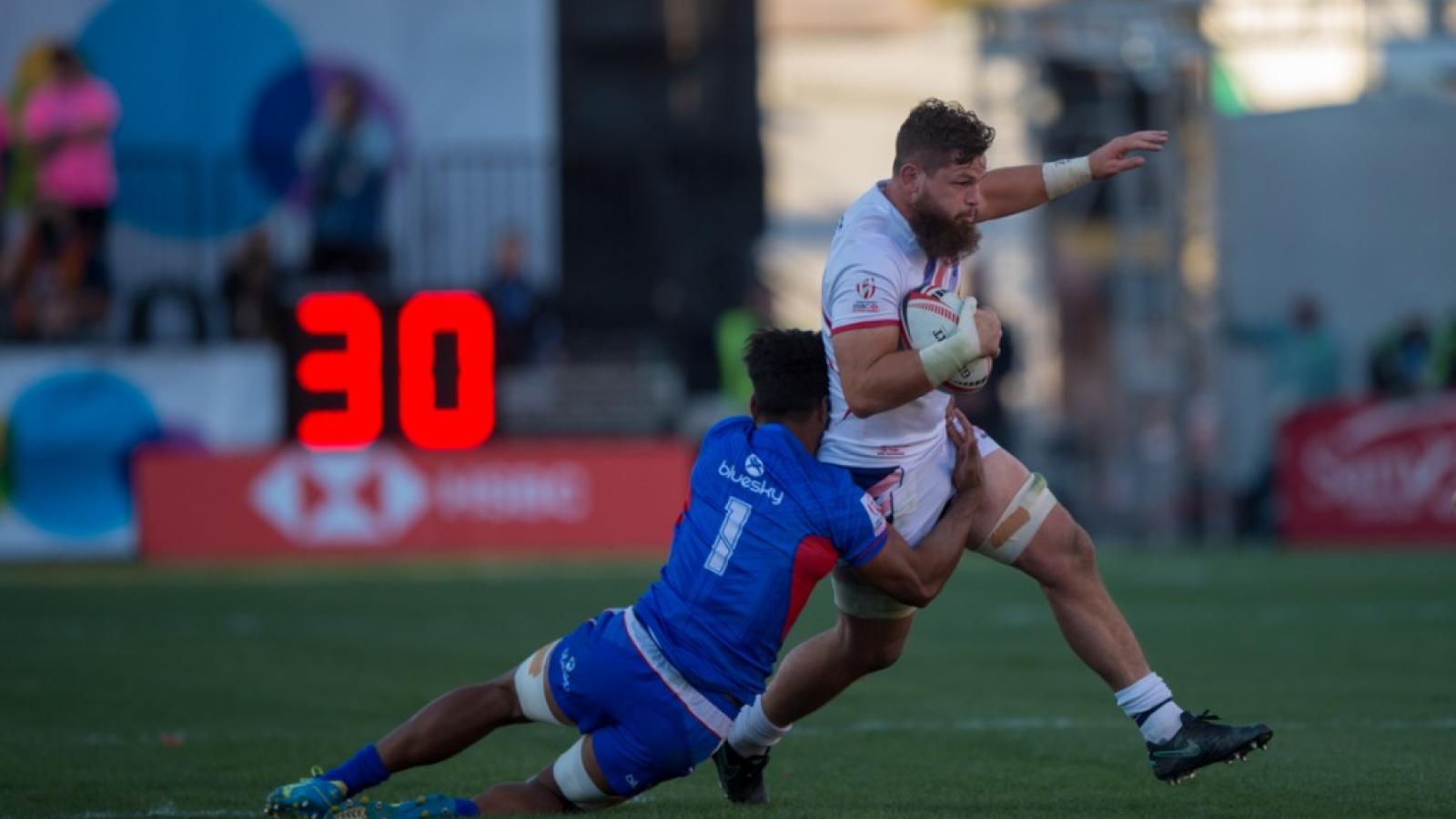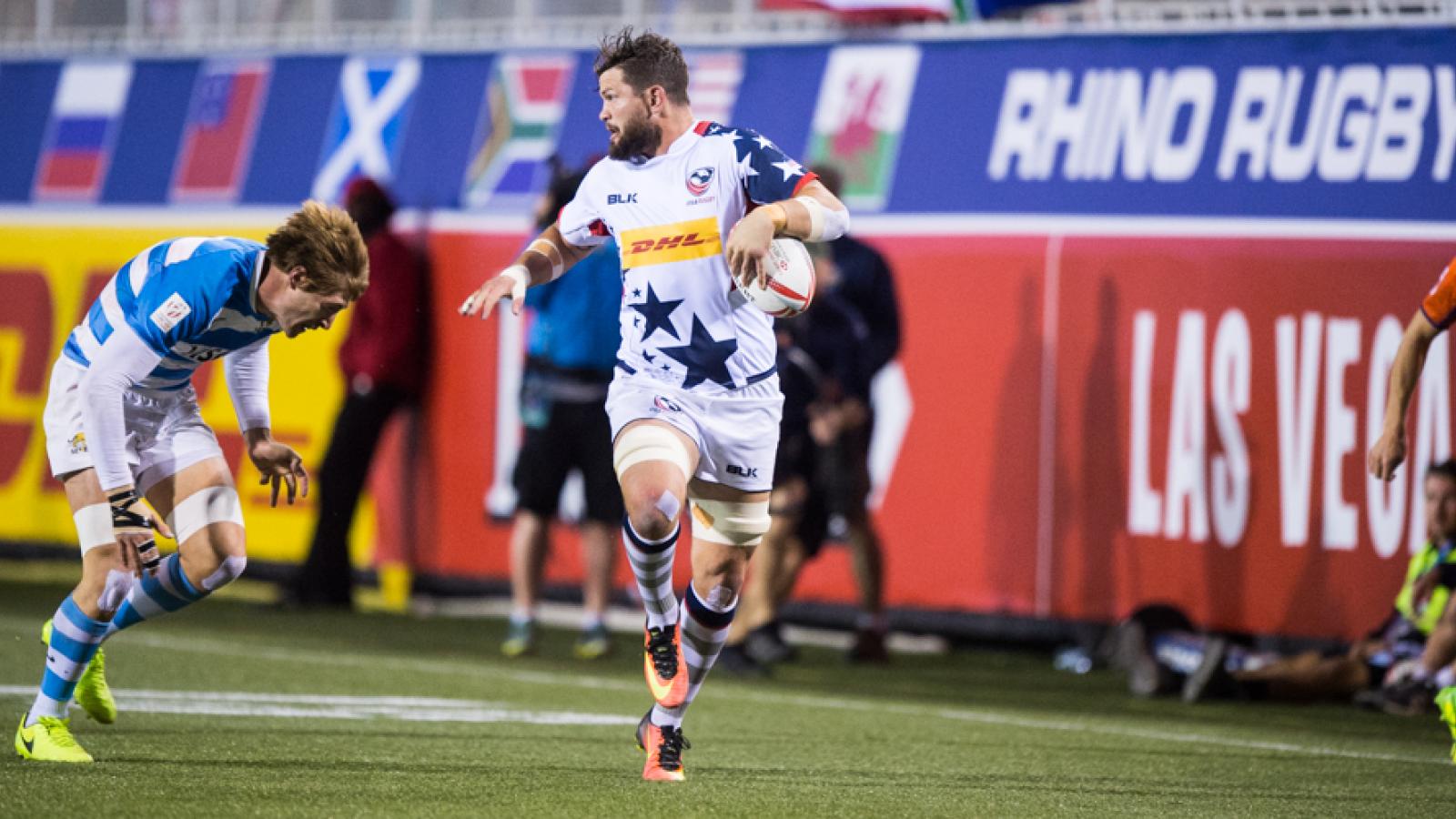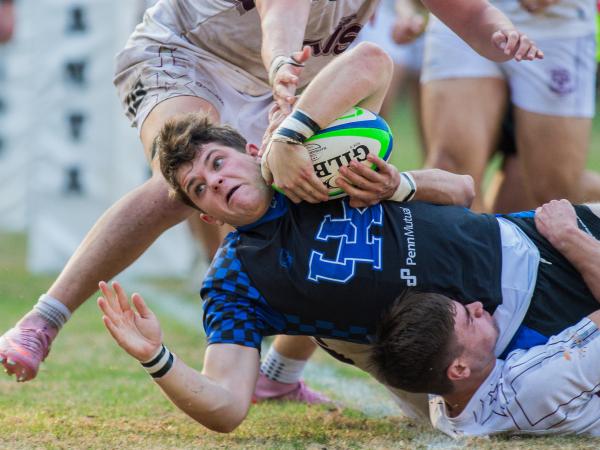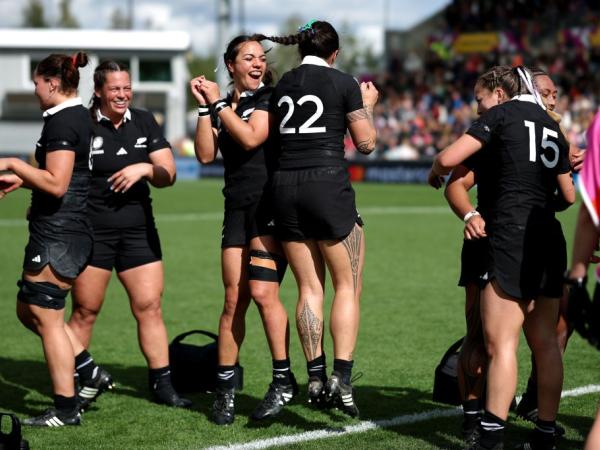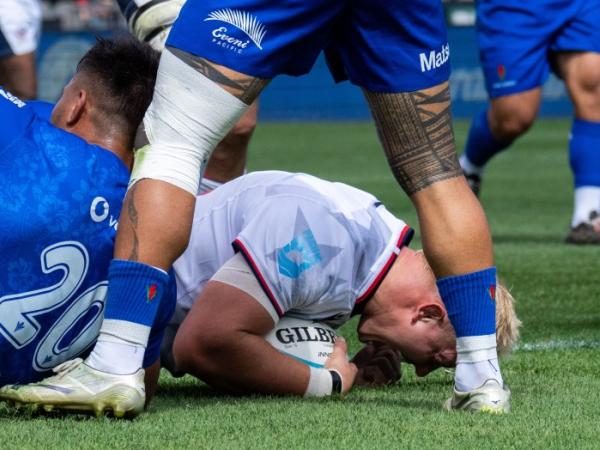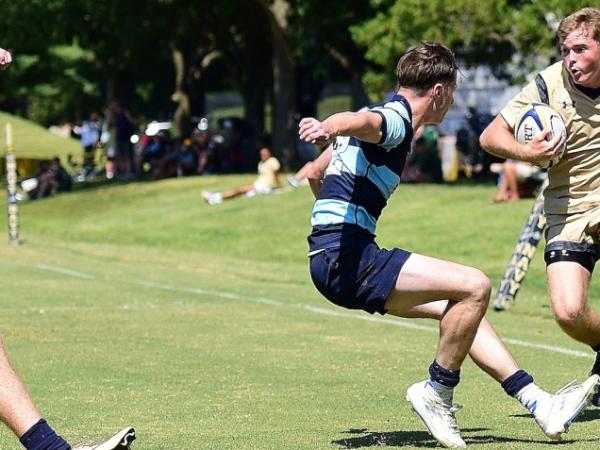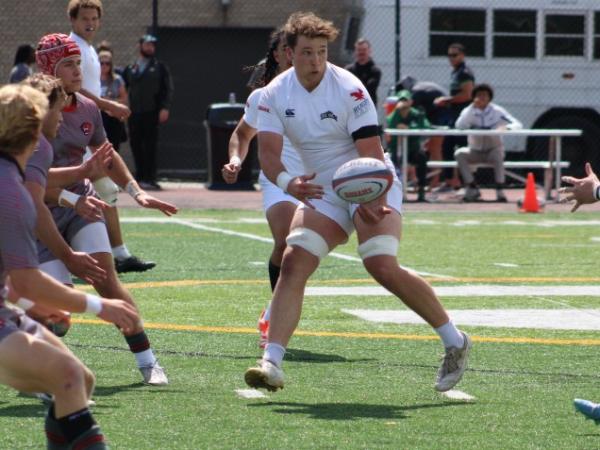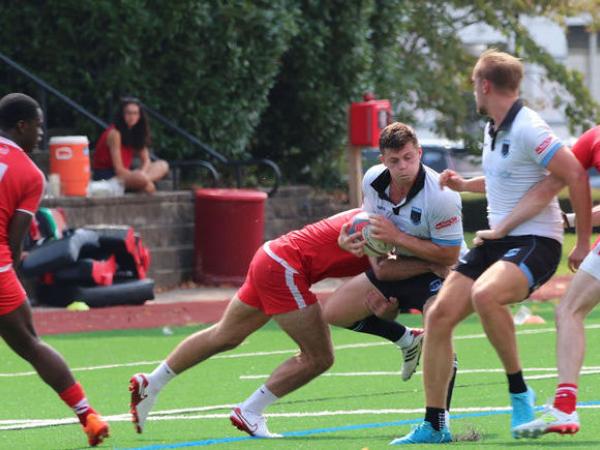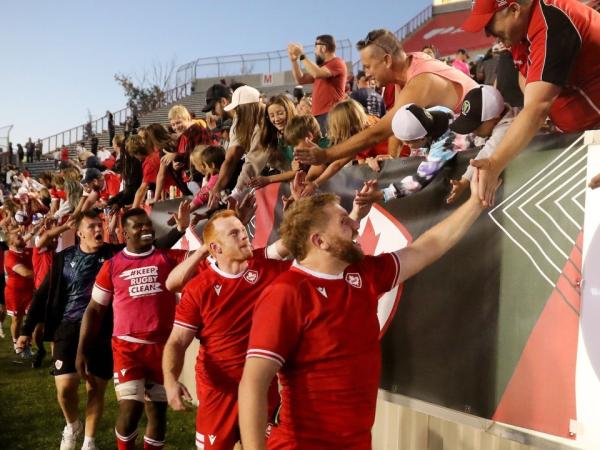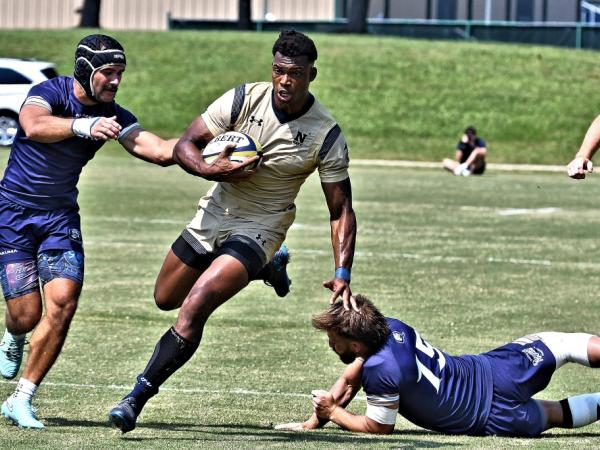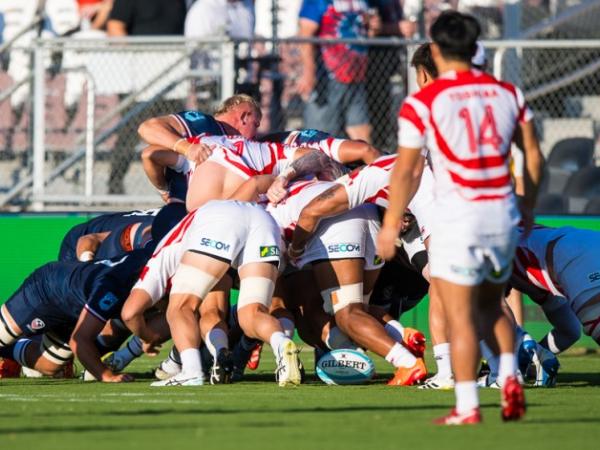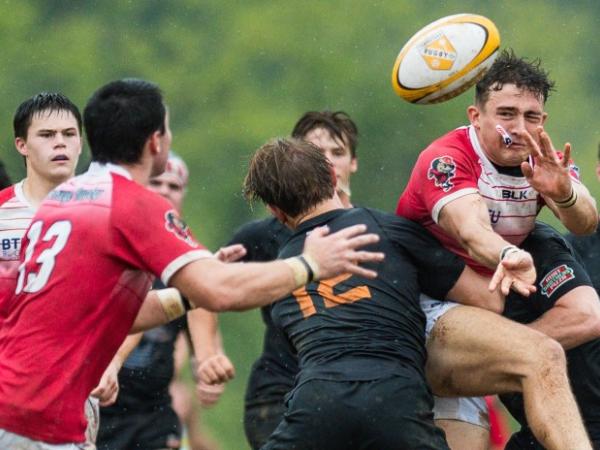Perhaps one of the most recognized and popular American rugby players, Danny Barrett is a true believer.
The game is paramount, and his new role as Executive Director of the Golden Eagles will allow him to further that ideal.
Danny Barrett Named New Executive Director of Golden Eagles
His appointment might come as a surprise to some, but there’s significant logic to it—Barrett is a recent player. He has had experience within the pathway at just about every level. He is smart, energetic, and understands the issues facing today’s international player.
And he’s a true believer.
Golden Is Precious
“The Golden Eagles have been fantastic,” Barrett told GRR in the wake of his appointment as Golden Eagles ED. “It’s been all behind the scenes for the majority of the time, but everybody within the National Team programs, the players, USA Rugby staff, and the players’ families … they know.”
The Golden Eagles work hard behind the scenes to ensure not only that a national team might be able to afford things such as increased player pay, extended assemblies, and even additional or improved travel (like airline class upgrades for long slights), but also more personal things.
“For me personally I started to notice the Golden Eagles around 2011 and they were even more behind the scenes back them. They really opened up to the players in 2013 to 15 and what they’ve done for the players is nothing short of incredible.”
Golden Eagles members set up internships and other opportunities for players to further their non-rugby careers. This is done so, for example, a national sevens team player doesn’t gave a five-year gap on his or her resumé, and instead can continue to learn and grow as a professional.
“That way when you’re done playing you have a legitimate fighting chance for a job and not have such a huge transition period,” Barrett explained.
The CARE program—Career Advancement Rugby Enhancement—came about circa 2015.
“I was on a panel at a dinner and someone asked ‘what do you guys need from us?’” related Barrett. “I was 25. My parents were saying ‘you need to find a real job.’ That wasn’t going to happen. All I ever wanted to do was be a professional athlete. But we knew we needed some way to help players be prepared for life after the game.”
In the summer of 2016 that program started to get going. Brett Thompson went to China for three months and learned footwear manufacturing. He now works for a footwear company. Nicole Heavirland has been training to become a firefighter. Barrett himself interned with a company in Amsterdam. That internship wasn’t even with a Golden Eagle company, but a friend of a former Eagle.
“I graduated Cal December 22, 2013,” said Barrett. “And I moved to Chula Vista and have been playing rugby for the last 10 years. You don’t get paid much as a player and you can’t work another job unless you are a bouncer or something at night and then your training suffers because you’re tired all the time. So these internships and other opportunities have been hugely important.”
A longtime player can suddenly lose his spot, and it’s a scary proposition to wonder how you feed your family. The Golden Eagles’ CARE program alleviates that fear.





